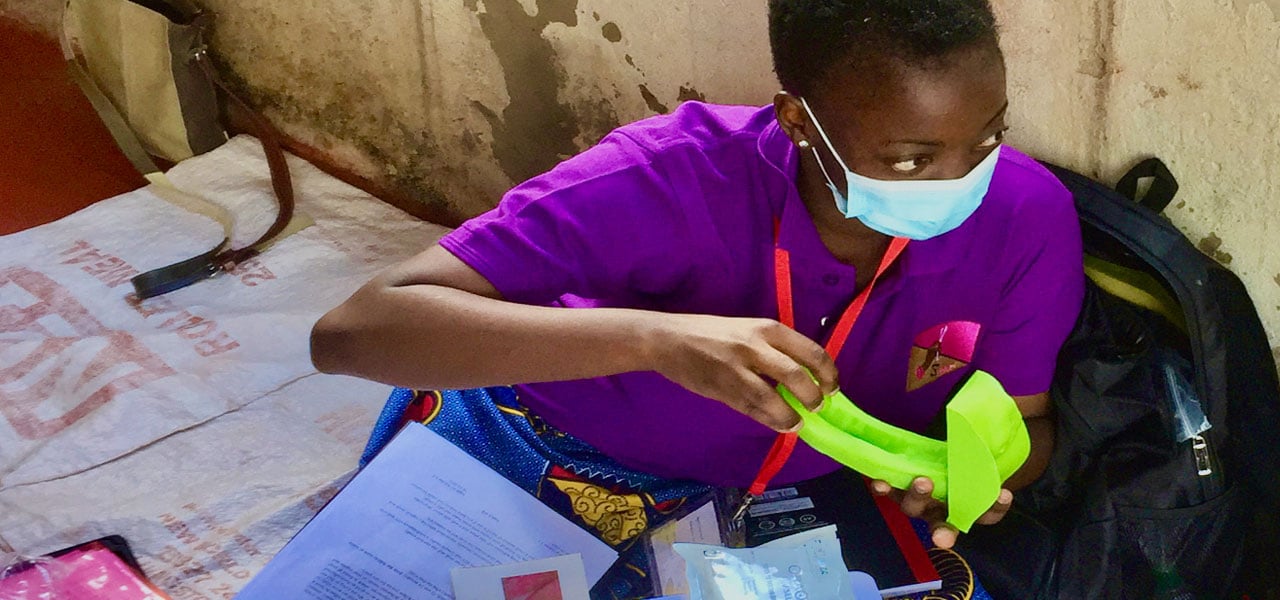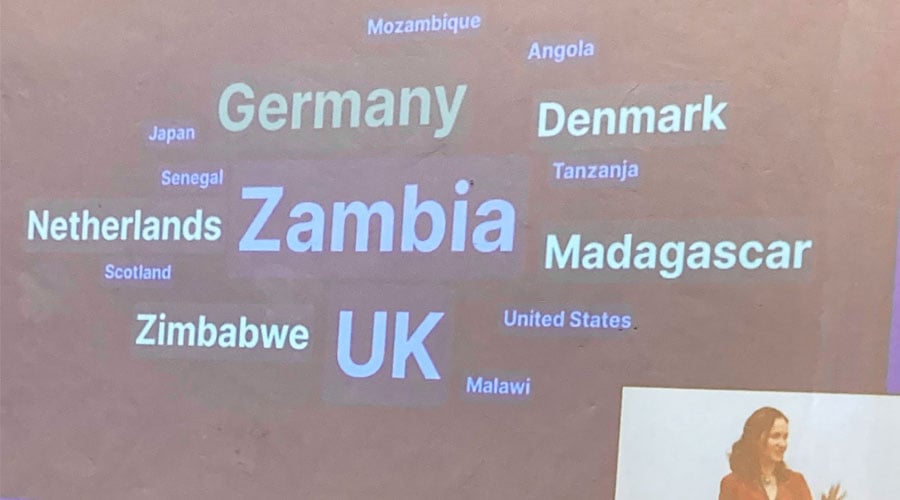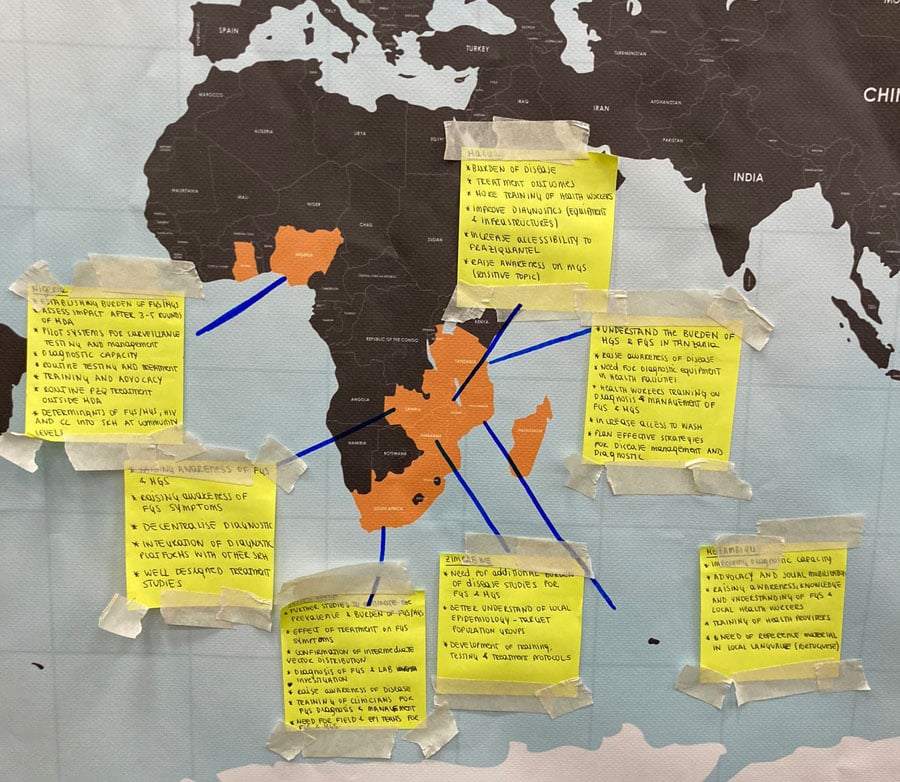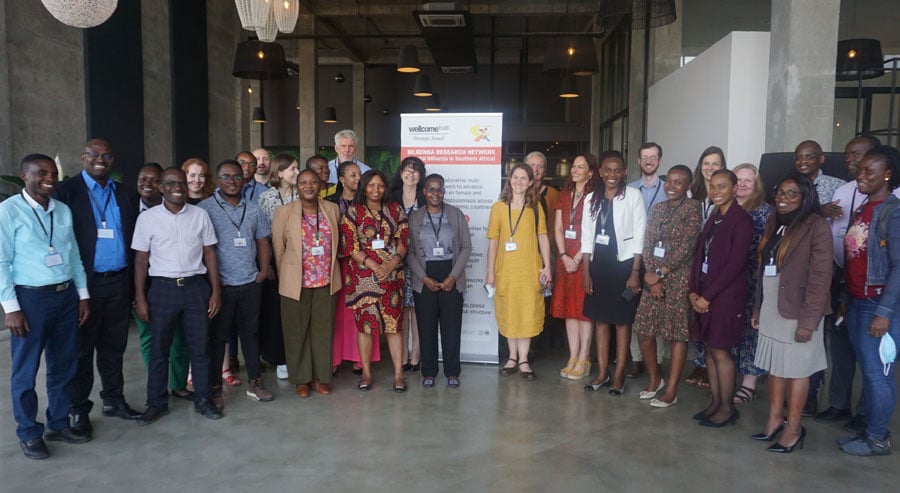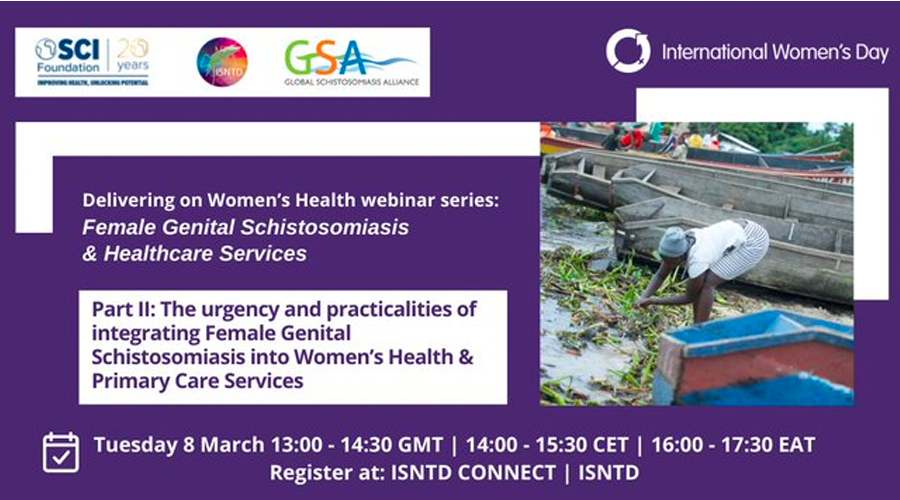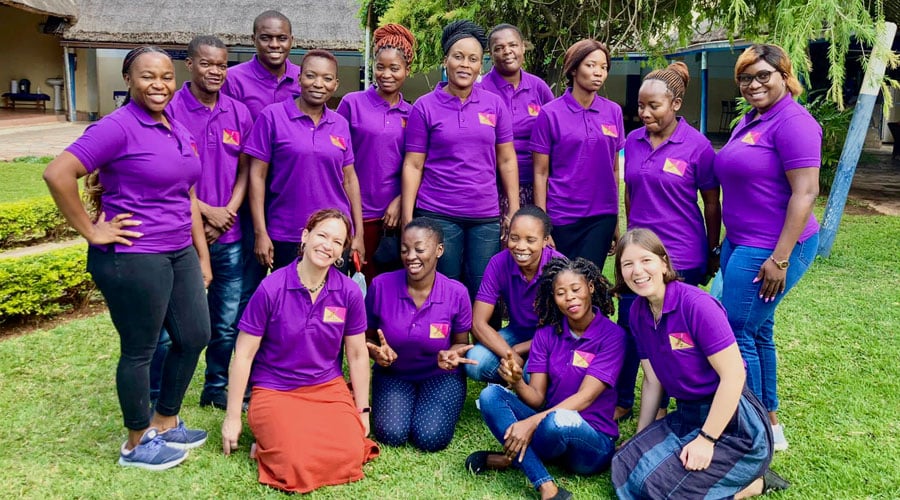The Zipime Weka Schista (Schista! for short) study aims to integrate female genital schistosomiasis, a neglected tropical gynecological disease, within the wider sexual and reproductive health screening strategies.
Integration of home self-sampling for the screening of female genital schistosomiasis with human papillomavirus (HPV) and self-testing for HIV and sexually transmitted infections is a cost-effective and self-empowering strategy that will increase the detection of cases and improve access to care for girls and women of reproductive age in sub-Saharan Africa.
The Zipime Weka Schista! (Schista! for short) study brings together world-wide experts from the fields of female genital schistosomiasis, cervical cancer and HIV to propose an innovative approach to integrate multi-pathogen home-based self-sampling and testing.
Principal Investigator
Site Principal Investigator - Zambia
Study Manager
- Rhoda Ndubani
Co-investigators
- Bellington Vallika
- Helen Ayles
- Fern Terris-Presthold
- Helen Kelly
- Bonnie Webster
- Lisette Van Lieshout
- Govert Van Damm
- Paul Corstjens
- Philippe Mayaud
- Virginia Bond
PhD students
- Olimpia Lamberti - LSHTM/Nagasaki
- Bronwyn Neufeld - LSHTM/Nagasaki
- Lucy Smith - MRC LID
- Morgan Lemin - MRC LID
This study is designed as a holistic approach to FGS detection at-scale in the community and within the wider scope of female sexual and reproductive health surveillance and linkage to care in Zambia. Female genital schistosomiasis (FGS) causes substantial morbidity in the female genital tract. Home-based genital self-sampling procedures allow discrete and convenient testing for participants with difficulty accessing a medical facility. Extending the possibility of home-based sampling for S. haematobium would allow improved diagnosis and treatment of this important condition.
This study’s emphasis on home-based testing compared with clinic-based testing will evaluate an innovative approach for future expansion of surveillance of FGS using diagnostics with high feasibility for use at scale with a special emphasis on health economics to aim for sustainability.
Read our publications.
The BILGENSA (Genital Bilharzia in Southern Africa) research network had its inaugural hybrid meeting in Lusaka, Zambia on November 9th and 10th . 14 travel grants were awarded to delegates attending from endemic countries who presented their country's ongoing work on female and male genital schistosomiasis. Research needs were highlighted per country. Thank you to the Zambart team and the Schista! Study for hosting the event! and to Marianna Kaye for helping arrange the meeting from London and Anouk Gouvras from the Global Schistosomiasis Aliance for hosting the online meeting.
We celebrated the work of our team of midwives - Alice, Agness, Kaziku and Mercy and a blog from our wonderful midwife - sister Kaziku posted at the MARCH Centre.
Our study manager Dr. Nanyangwe Siuluta and our Schista Community Worker Ruth Mwansa presented at the ISNTD panel discussion on International Women's Day integrating FGS into the Health System
The Schista study started recruitment on January 19th. Our teams are in the field going door to door recruiting participants and implementing self-sampling through their 'mini' portable laboratories.
On August 31st the Schista! study was officially launched. District Health Officers from Kafue, Chongwe and Livingstone and NTD officers from the Ministry of Health attended the virtual event.
Amaya Bustinduy, PI of the Zipime Weka Schista project was awarded the Future Leaders Fellowship to conduct the work. Read more about the award.

